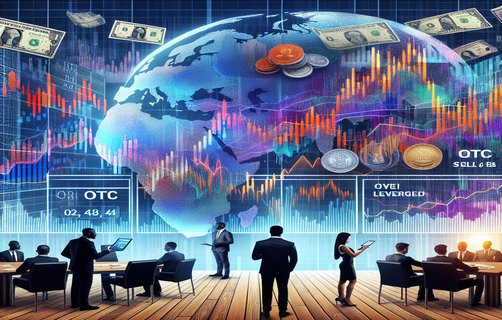

In a realm where conventional business paradigms often struggle to evolve, an unexpected spark emerges—imagine a world where sustainability and profitability not only coexist but drive each other to unprecedented heights. This vibrant narrative challenges us to rethink mechanisms of growth, turning traditional strategies on their head by fusing the certainty of innovative risk management with the dynamic pulse of green enterprise.
Corporate landscapes have long been dominated by the pursuit of profit. However, as environmental and social challenges intensify, companies are finding that the blueprint for long-term success lies in sustainable innovation. At the confluence of eco-conscious practices and creative business strategies lies an opportunity not only to drive positive change but also to secure competitive advantage. The transformation—from a profit-only focus to an integrated approach embracing sustainability—is redefining what it means to be resilient in today's market.
Forward-thinking businesses are discovering that embracing sustainability can lead to tangible benefits. Strategies such as circular production systems, waste reduction initiatives, and renewable energy investments are proving transformative. Companies that invest in sustainable solutions often see enhanced operational efficiencies, reduced costs over time, and access to new market segments fueled by conscious consumerism. This holistic approach ensures that environmental stewardship and business performance are no longer mutually exclusive ideals.
A crucial element of this transformation is innovation. When companies adopt agile thinking and risk-managed approaches—akin to the ethos of straight, shorttermloss, limitexposure, frequentminipayouts, freerewards, variablebetting—they set a foundation for dynamic growth. Embracing controlled short-term losses in innovation can pave the way for breakthrough products and services that resonate in a green marketplace. By limiting exposure to potential setbacks and rewarding incremental success, companies create a robust framework that champions sustainable advances while keeping the financial bottom line secure.
Business models are now leveraging cutting-edge technologies to optimize resource usage and minimize environmental footprints. For example, the advent of data analytics and the Internet of Things (IoT) offers unprecedented opportunities for tracking efficiency and reducing waste. Companies are harnessing these tools to generate rapid feedback loops, adapt production processes in real time, and forecast market trends with greater accuracy. This blend of technology and sustainable strategy is revolutionizing operations across sectors, from manufacturing to retail and beyond.
Equally important is the strategic shift in mindset, one that values long-term societal benefits over transient gains. As ethical consumerism grows, so does the demand for companies that operate transparently and responsibly. Inclusive initiatives such as community engagement projects, employee well-being programs, and ethical sourcing are critical components in building brand loyalty and trust. In an age where stakeholders demand accountability, a sustainable approach acts as a magnet, drawing resources, talent, and capital towards responsible businesses.
Moreover, sustainability opens new corridors for innovation in business practices. In the competitive race for market dominance, businesses are increasingly exploring novel avenues like renewable energy investments, green supply chains, and sustainable product designs. This integrated thinking not only curtails environmental impacts but also unlocks unique value propositions that translate into enhanced consumer trust and market differentiation. Companies that seamlessly merge fiscal prudence with green innovation are better positioned to scale their operations sustainably.
Innovation in sustainability is not without its challenges. Companies must navigate regulatory complexities, evolving consumer expectations, and sometimes turbulent market dynamics. However, those who manage these factors adeptly find that the dual focus on environmental and financial performance can yield long-term benefits. The future of profitable yet responsible business is emerging as a multidimensional concept—one that requires collaboration, creativity, and courageous leadership.
As we look towards an uncertain tomorrow, one thing is clear: corporations that prioritize eco-innovation are setting a powerful precedent for industries worldwide. The integration of sustainable practices into the business model is no longer just a competitive advantage; it is a necessity. The journey requires reevaluating risk, inciting innovation with calculated losses, and fostering an environment where every setback serves as a stepping stone towards greater achievements.
Interactive Questions:
1. How can businesses best integrate sustainability into their existing profit models without compromising innovation?
2. What examples of successful eco-innovation have inspired you most in recent years?

3. In what ways do you think future technologies will enhance sustainable business practices?
FAQs:
Q1: What does it mean for a business to be sustainable?
A1: Sustainability in business means adopting practices that not only drive profit but also reduce environmental impact, ensure social responsibility, and support long-term ecological balance.
Q2: How can companies manage initial short-term losses while investing in sustainable strategies?
A2: Companies can plan for controlled risk by using agile methodologies, diversifying investments, and applying real-time analytics to make informed decisions, thus balancing short-term setbacks with long-term gains.
Q3: Why is innovation critical for merging profitability with sustainability?
A3: Innovation creates new opportunities for efficiency and market differentiation. It allows companies to develop cutting-edge products and services that meet the growing consumer demand for ethical, eco-friendly business practices, leading to sustained profitability in a competitive market.


Comments
Lily
The integration of technology and sustainability in this article is truly eye-opening. It redefines what it means to be a responsible business today.
王燕
I loved the creative approach to risk management described. It really shows that controlled innovation can be a game changer!
Michael
A fresh and insightful read! The idea of balancing short-term losses with long-term gains through sustainable practices is particularly intriguing.
陈力
This article made me rethink how businesses can be both profitable and responsible. Very inspiring content!